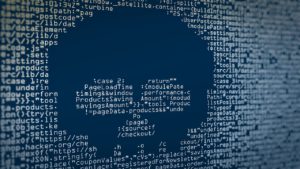The shift to remote work has presented new cybersecurity challenges for small businesses, especially those regulated by the New York Department of Financial Services (NY DFS). Ensuring that remote work environments adhere to DFS compliance is essential for maintaining data security and avoiding regulatory penalties. This blog post explores the importance of securing remote work, the DFS requirements, and practical steps for small businesses to ensure compliance.
The Importance of Remote Work Security
As more employees work from locations outside the traditional office, securing remote access to business systems becomes crucial. Key benefits of enhanced remote work security include:
- Protection of Sensitive Data: Ensures that sensitive business and customer data remains secure, even when accessed from various remote locations.
- Regulatory Compliance: Helps meet specific legal and regulatory requirements that govern data protection and cybersecurity.
- Reduced Risk of Cyber Threats: Minimizes the risk of data breaches and cyberattacks, which are often facilitated by insecure remote access points.
- Maintaining Business Continuity: Secure remote work systems are less likely to suffer from disruptions caused by security breaches, maintaining operational continuity.
DFS Compliance Requirements for Remote Work
The NY DFS Cybersecurity Regulation (23 NYCRR 500) requires covered entities to implement and maintain effective controls, including secure user authentication protocols, encrypted communication, and timely detection and reporting of cybersecurity events. For remote work, these controls must ensure that all access to Nonpublic Information (NPI) is secure and that the integrity and confidentiality of data are maintained.
Detailed Steps for Ensuring Remote Work Security with DFS Compliance
Here’s a practical approach for small businesses to secure remote work environments while complying with DFS regulations:
- Implement Strong User Authentication: Require multi-factor authentication (MFA) for all remote access to the network. This is a DFS requirement and provides an additional layer of security by requiring more than one form of verification to authenticate a user’s identity.
- Use Secure Connections: Ensure that all data transmitted between remote devices and company networks is encrypted using Virtual Private Networks (VPNs) or other secure connection protocols. This helps protect data in transit from interception or manipulation.
- Manage Device Security: Implement security measures for devices used in remote work, such as laptops, smartphones, and tablets. This includes using antivirus software, ensuring that all devices are kept updated with the latest security patches, and employing endpoint detection and response (EDR) systems.
- Educate Employees: Conduct regular training sessions for employees on secure remote work practices. Topics should include recognizing phishing attempts, securing home Wi-Fi networks, and correctly using secure access tools like VPNs and MFA.
- Monitor and Audit Remote Access: Regularly monitor and audit remote access to networks and systems. Use logs and security tools to track access points and detect any unusual activity that could indicate a security breach.
- Develop a Remote Work Policy: Formalize a remote work policy that outlines the expectations and responsibilities for secure remote work. The policy should align with DFS requirements and include guidelines for using personal devices, securing data, and reporting security incidents.
Virtual Assistants
Virtual assistants (VAs) have become an integral part of remote work strategies for many small businesses, offering cost-effective support for a variety of tasks. However, integrating VAs into your remote workforce presents unique security challenges, especially when complying with NY DFS regulations. This section will discuss how to securely incorporate virtual assistants while maintaining the integrity and security of your business operations.
Security Considerations with Virtual Assistants
When employing virtual assistants, particularly those who handle or have access to Nonpublic Information (NPI), it’s crucial to implement stringent security measures:
- Access Control: Limit the access of virtual assistants to the absolute minimum necessary for them to perform their duties. Use role-based access controls to enforce these limitations and ensure that VAs cannot access sensitive information beyond their scope of work.
- Secure Communication Channels: Ensure that all communications with virtual assistants, especially those involving sensitive information, are conducted over encrypted channels. Utilize secure file-sharing and communication platforms that comply with DFS standards.
- Regular Monitoring and Auditing: Continuously monitor the activities of virtual assistants related to data access and system interaction. Regular audits can help detect any inappropriate access or potential breaches early, allowing for swift corrective actions.
Best Practices for Integrating Virtual Assistants with DFS Compliance
- Conduct Thorough Vetting and Background Checks: Before hiring virtual assistants, conduct comprehensive background checks to verify their credibility and trustworthiness. This is important not only for security but also for compliance with DFS regulations, which emphasize the importance of integrity in handling sensitive information.
- Implement Strong Authentication Protocols: As with any remote worker, require virtual assistants to use multi-factor authentication (MFA) to access any business systems. This adds an additional layer of security by requiring multiple forms of verification.
- Use Dedicated Virtual Workspaces: Consider setting up dedicated virtual workspaces for virtual assistants. These environments can be controlled and monitored more effectively than if VAs were given access to the main business network.
- Provide Specific Training on Security and Compliance: Train virtual assistants on specific security policies and protocols related to NY DFS regulations. Ensure they understand the importance of data security and how to handle and report any security incidents.
- Regularly Update Security Policies and Access Permissions: As with any aspect of cybersecurity, the landscape is constantly evolving. Regularly review and update your security policies and access permissions for virtual assistants to address new threats and changes in compliance requirements.
Final Thoughts
Navigating remote work security with DFS compliance requires a combination of technology, policies, and training. By implementing robust security measures and educating employees on best practices, small businesses can create a secure remote work environment that complies with NY DFS regulations. This proactive approach not only enhances data security but also supports the overall resilience and trustworthiness of the business in a remote work landscape.
Verify if your remote workers – or prospective remote workers and virtual assistants – will not put your company at risk with a no-obligation assessment: https://motiva.net/assessment


